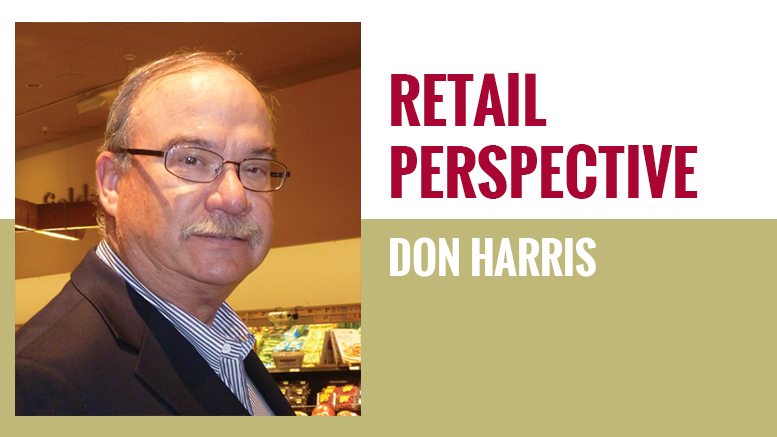Consolidation Protocol
February 1, 2016 | 3 min to read
Over time, the retail industry has seen consolidations that often lead to management challenges in merging different operational philosophies. The arrogance of acquiring companies can disrupt successful operations, as shown by dismissive attitudes like “Who bought who?” This superiority can drive ill-advised changes, undermining the strengths of the acquired entity. Those who approach consolidation with humility and a focus on mutual benefits generally achieve long-term success, while neglecting customer input can result in lasting damage to reputation and goodwill.

Over the years, our industry experienced a series of consolidation  amongst various retailers into stronger units. We may be entering another one of those phases. During these times, management is constantly challenged with incorporating various aspects of different philosophies into one strategy. In more than one occasion, the acquiring entity forgets to realize the value of the company that it is acquiring.
amongst various retailers into stronger units. We may be entering another one of those phases. During these times, management is constantly challenged with incorporating various aspects of different philosophies into one strategy. In more than one occasion, the acquiring entity forgets to realize the value of the company that it is acquiring.
Having been involved in a number of these types of situations, it is obvious that there is a right way and a wrong way to handle the situation. Sometimes the acquiring company takes an arrogant stance that is not conducive to a smooth transition. In fact, I was once involved in a meeting where various ideas of consolidation protocol were being discussed. When any challenges came up to management’s approach to the integration, the reply was, “Who bought who?” This is just another occurrence of where management “just doesn’t get it”!
Consolidations, by nature, tend to have one side that is in control and the other side subservient to the wishes of the bigger party. It is how the relationship between these two parties is handled and the strategic advantages developed from the union that determines the overall success. Many times, the party with the upper hand forces its culture and operational philosophy upon the one being acquired. This is done for no better reason than the ego of the acquiring company. A response such as, “Who bought who?” is a reflection of the feeling of superiority by the acquiring company.
To simply dismantle successful programs and enforce different guidelines to fit the acquiring company’s operational philosophy is inherently dangerous…
This feeling of superiority allows management to make ill-advised changes to the smaller operation, which has negative consequences. It must always be remembered that the entity being acquired had some measure of recent success, or it would not have been a target for acquisition. To simply dismantle successful programs and enforce different guidelines to fit the acquiring company’s operational philosophy is inherently dangerous to the successful incorporation and continued growth of the combined organization.
There have been good examples of consolidations by utilizing a more measured approach to the incorporation and mutual benefits of the organizations. Forward-thinking companies do a better job of documenting and exploring the successful aspects of their acquisition. They learn what the company does well and what the customers believe make it the retailer-of-choice.
An enlightened retailer uses the integration to reinforce and continue the successful, consumer-friendly behaviors and to confine the initial consolidation to backstage activity. In this manner, consolidation can be accomplished with minimal change and/or controversy from the customers and employees. Most importantly, customers perceive there is no change in their favorite store. The consumer may not perceive the benefits of backstage improvements in economies of scale in the immediate future; however, over time, these benefits will be exposed to improve efficiency at store level and to create competitive pricing.
There is a pitfall to this approach if there is a lack of follow-through after the investigation of the positive attributes of the acquired company. In this case, new management largely ignores and modifies these concepts to fit its philosophy. This leaves the customer feeling that while the new company asked for their input and preferences, the acquiring company goes ahead and does what it wants to do anyway. This type of decision-making causes more damage than simply going ahead and changing everything for change sake. Essentially, new management betrayed the goodwill of the customer by taking their input, ignoring it, and modifying it to their own purpose.
We only need to look back to the large wave of consolidation in the late 90s to find examples where the ego of the acquiring company — and its actions to modify the acquired company — led to retail disaster. The ironic part of this is that, instead of taking advantage and learning concepts that would help the larger entity move forward, these positive aspects were lost, along with the reputation of perception of the smaller companies.
On the other hand, those companies that displayed the more enlightened approach enjoyed the fruits of labor by moving the larger combined operation forward by driving successful operations and sales growth. Many economists believe that consolidation has a number of advantages, both operationally and financially. However, in the world of retail, such advantages are only available if management checks its ego at the door.
Don Harris is a 41-year veteran of the produce industry, with most of that time spent in retail. He worked in every aspect of the industry, from “field-to-fork” in both the conventional and organic arenas. Harris is presently consulting and is director of produce for the Chicago-based food charity organization, Feeding America. Comments can be directed to editor@producebusiness.com.
9 of 17 article in Produce Business February 2016

